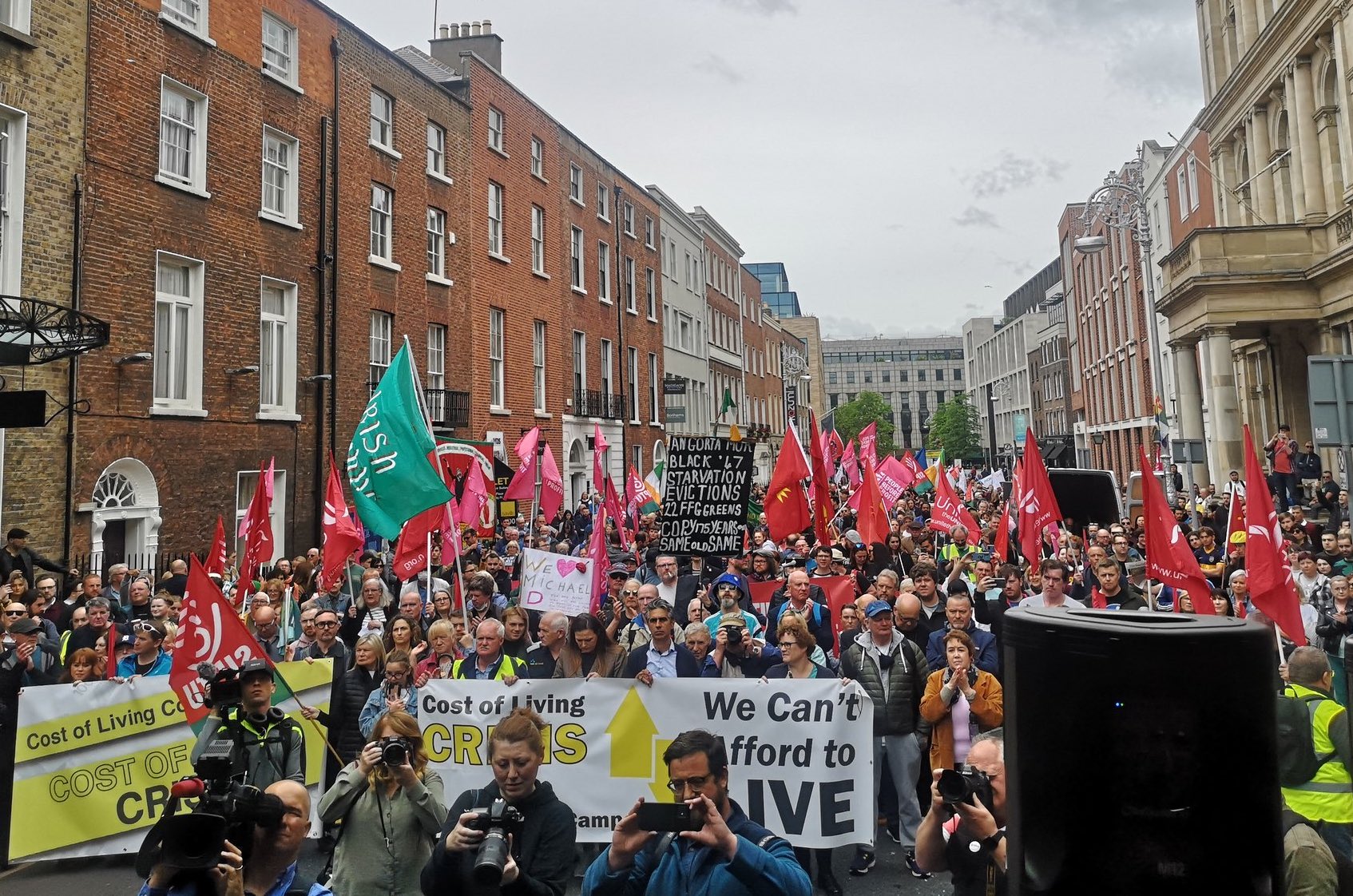By Jack Nolan.
In the midst of the pandemic, and the ensuing global economic crisis in its aftermath, the
latent social and economic inequalities that have plagued Ireland, and indeed the wider
world, have been heavily accentuated by the onset of a grave cost of living crisis.
From the exorbitant costs of renting and attaining decent healthcare, to the shameful
proliferation of food and energy poverty among working people amidst inflation, it is
becoming abundantly clear that the free market post-Covid is providing a future that could
not be further from anything one could construe as “freedom”.
It is in contemplating this future that we begin to envisage both the opportunities and
outcomes that await a broad cohort of young people that will contribute to such a future,
third-level students. In doing this, we need look no further than the present to see how our
student population lives and studies; which for the most part is in a gravely inequitable
socioeconomic climate. The same struggles plague students in the current economic crisis,
with students facing an unparalleled rental crisis, inconceivably high fees to attend third-level
institutions, and a myriad of consequential social and economic hardships ranging from
insufficient wages at work, to coping with the basic costs of living as a student, or
student-worker.
A primary concern for those of us who are intent on addressing the grave inequalities
students face in third-level institutions, is making student activists and those
deeply-ensconced in the mechanisms through which student voice can practically effect
change, namely student unions and student media outlets, aware of the red-line issues that
are most adversely affecting the most vulnerable third-level students and student workers.
An example of this task coming to some fruition is the upcoming student walkout organised
by the Union of Students in Ireland (USI) in response to the rental crisis facing students in
Ireland at present, organised by their Vice President for Campaigns, Ross Boyd. Boyd,
taking to social media to outline the reasoning for the planned walkout, lays bare the reality
of the antipathy felt by students struggling to make ends meet:
“Students are sick of the same old crises of high rents, high fees, [and] high cost
barriers”
And rightly so.
Since the initiation of the Housing For All action plan, devised to tackle the
seemingly-unassailable housing emergency plaguing our nation’s most economically
vulnerable, rental costs have increased by 12.7%. Evictions have skyrocketed by 58%, many
of which being semi-legal and all of which being morally reprehensible. This grotesque
reality is creating a housing situation even more hostile and unstable than those that have
preceded it. Students are bound to suffer even more adversely than in previous years in
trying to secure stable, affordable and habitable accommodation for the upcoming academic
year.
However, these efforts will undoubtedly be marred by the concurrent expenses
accompanying their inequitable accommodation costs, the most unjustifiable of which
arguably being their fees simply to attend third-level institutions. These fees, which rank
highest in the European Union, exceed €3,000 for 3 in every 5 Irish students per annum. For
decades, students have sought a transition towards a universal, publicly-funded third-level
education system. Many accuse proponents of this model, particularly those with left-wing
motivations, as being greedy and impractical in their desires, despite the fact that this would
only address the tip of the iceberg for students experiencing financial difficulties. The
average cost of funding a third-level education in Ireland for four years in 2019 was €35,320,
which at the time left 40% of those who paid such fees in debt. The current period of
excessive inflation will not only increase this figure, but will erode the spending power of
ordinary students in trying to pay it.
This begs the question, how do we work to eradicate the inequalities faced by third-level
institutions, while also addressing the broader housing and cost of living crisis facing workers
and families in Ireland at present? The answer to any informed, realistic student activist
should be self-evident. Students need to be organised effectively and invasively to tackle the
demon that is educational capitalism head-on.
This means that student unions must act as mechanisms that make students as conscious
and impassioned as possible to make the link between the ongoing financial crises faced by
workers and families across the country, and the inequalities that face them in attaining an
education. Student unions must therefore endorse the sorts of radical actions taken in years
gone by by the trade union movement in achieving their goals, and co-opt these methods to
deliver on building a newer, more equitable, more accessible tertiary education sector for our
student body.


